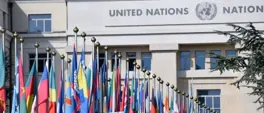What is AIPAC and is it losing its influence in US politics?
Sara-Jayne Makwala King
22 October 2025 | 16:22Once a key player in Democratic campaigns, AIPAC is now seeing candidates reject its support amid shifting views on US-Israel policy.

Picture: Pixabay.com
American media organisation The New Republic this week reports on what it calls a 'long-overdue reckoning on Democrats and Israel'.
'Suddenly, Democratic politicians are running away from AIPAC,' writes journalist Perry Bacon.
It's certainly a shift in the tides of US politics which has, for many years, seen Democratic candidates – particularly in Senate and Presidential races – highlighting the importance of a close US-Israel relationship, and voicing strong backing for Israel.
Just last week, Senate-hopeful Seth Moulton promised to return campaign donations he received from those affiliated with AIPAC (American Israel Public Affairs Committee).
The committee is one whose name almost always surfaces in conversations about US foreign policy toward the Middle East, notes 702's Clement Manyathela.
AIPAC is often described as one of the most powerful lobbying groups in Washington, and has long shaped how the United Statesengages with Israel.
International relations expert Oscar van Heerden says it started out being known as the 'Jewish lobby', but increasingly there was backlash against the term, which some felt was anti-semitic.
"Precisely because there's a lot of American Jews and Jews globally that are not in support of AIPAC, and so the politically correct term these days is to say the Israeli lobby."
He explains that the committe was established in 1954 in the United States, soon after the formation of the state of Israel.
"The explicit aim is to influence public opinion about Israel, to encourage material aid to Israel, and to influence opinion on Israel in the US."
The agenda of the organisation is very clear, says van Heerden.
"It is in full support of the settler, colonial project that is happening in Palestine, and it makes no excuses that it defends the state of Israel against all perceived enemies."
The way it does that is to influence US politicians, explains van Heerden.
"They fund, influence and assist young aspiring politicians on both sides of the aisle, they are bi-partisan."
The impact of this funding, says van Heerden, is that speaking out against Israel spells trouble.
"You become isolated, you become a target, people disassociate from you... if you go against AIPAC, the money gets withdrawn."
To listen to international relations expert Oscar van Heerden in conversation with 702's Clement Manyathela, click on the audio below:
Get the whole picture 💡
Take a look at the topic timeline for all related articles.












